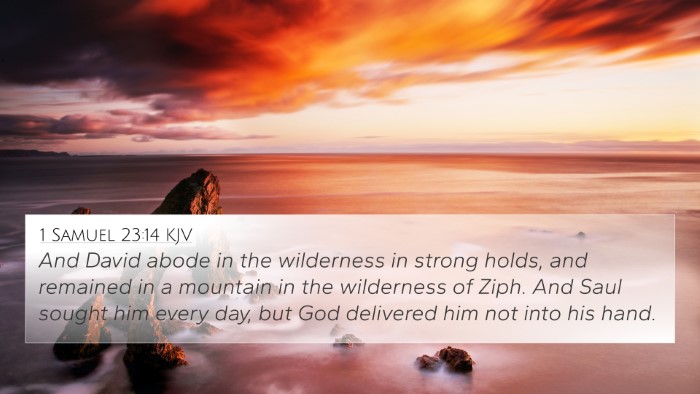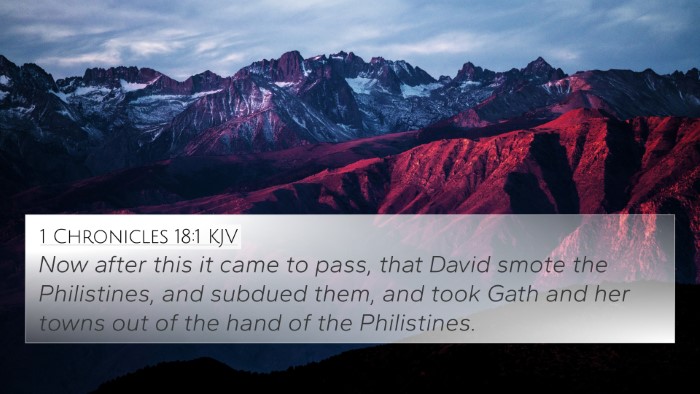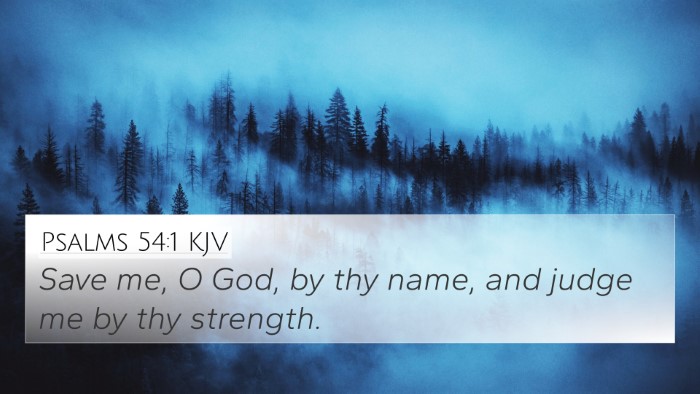Understanding 2 Chronicles 11:8
2 Chronicles 11:8 states, "And he built cities for defense in Judah: Bethlehem, Etam, Tekoa," which reflects King Rehoboam's efforts to establish and fortify his kingdom following the division of Israel after Solomon's reign.
This verse emphasizes the theme of security and strength in leadership and governance, highlighting the necessary actions taken by a ruler to protect his territory and maintain order. Below, we explore various insights drawn from public domain commentaries, providing a deeper understanding of this verse.
Commentary Insights
Insights from Matthew Henry
Matthew Henry notes that Rehoboam's choice to build fortified cities signifies his understanding of the tumultuous times. As a king, he recognized the importance of strongholds to defend against potential threats, particularly following the secession of the Northern tribes.
- Strengthening the Kingdom: By fortifying cities like Bethlehem, Etam, and Tekoa, Rehoboam was not just defending his reign but also asserting the stability of Judah.
- Symbol of Authority: The act of building reflects the authority of a king who is proactive in securing his position and the wellbeing of his subjects.
Insights from Albert Barnes
Albert Barnes emphasizes the geographic and strategic significance of the cities chosen by Rehoboam. These cities provided natural defenses and were key locations within the region.
- Geographical Importance: Each city had its own unique advantages; for instance, Bethlehem was not only significant historically (the birthplace of David) but also vital strategically.
- Preserving the Heritage: In reinforcing these sites, Rehoboam also aimed to connect his reign back to the legacy of David, indicating the importance of heritage in leadership.
Insights from Adam Clarke
Adam Clarke offers insight into the military aspect of Rehoboam's actions. By reinforcing his kingdom, Rehoboam prepared for possible conflicts that could arise from the divided nation.
- Preparation for Conflict: Clarke points out that building defenses signifies foresight in leadership, providing the necessary means to defend against adversaries.
- Leadership Responsibilities: A good leader ensures the safety of their people, demonstrating that Rehoboam was aware of his duty even amidst the challenges he faced.
Bible Verse Cross-References
This verse is rich with connections to other scriptures that highlight themes of leadership, fortification of cities, and the importance of heritage. Here are 10 relevant cross references:
- 2 Samuel 5:9: Here, David captures the stronghold of Zion, indicating the significance of fortified cities in establishing a kingdom.
- 1 Kings 12:1-17: This passage discusses the division of Solomon's kingdom, setting the stage for Rehoboam's challenges.
- Isaiah 26:1: This verse reflects a song of praise about a strong city, symbolizing the security that fortified places provide to God’s people.
- Psalm 48:1-2: This psalm celebrates the beauty and strength of Zion, illustrating the spiritual significance of fortified cities.
- Jeremiah 31:38-40: In this verse, God talks about rebuilding and the permanence of Jerusalem, showing the importance of strength in biblical cities.
- Nehemiah 4:7-9: This passage discusses the rebuilding of Jerusalem's walls, echoing the theme of fortifying God's people.
- Micah 4:8: This verse speaks of the stronghold of Zion, indicating its significance as a defensive and spiritual center.
- Hebrews 11:10: Referring to Abraham seeking a city which has foundations, this suggests the eternal aspect of a fortified place.
- Revelation 21:2: The New Jerusalem is described, emphasizing the ultimate divine provision for security and peace.
- Matthew 7:24-27: This section discusses the wise builder, drawing parallels to the importance of a solid foundation in life and leadership.
Conclusion
In examining 2 Chronicles 11:8, we learn that the actions of King Rehoboam in building fortified cities are emblematic of a leader's responsibility to protect and nurture their people. This theme is echoed throughout scripture, revealing the interconnectedness of various biblical narratives. Through the insights provided by Matthew Henry, Albert Barnes, and Adam Clarke, we gain a richer understanding of the significance of this verse in the broader context of the Bible.
For those interested in expanding their understanding of scripture, employing tools for Bible cross-referencing, such as a Bible concordance or cross-reference Bible study guide, can enhance one’s study experience. These resources facilitate deeper exploration into connections between Bible verses and help uncover thematic Bible verse connections. Understanding this verse through cross-referencing can yield insights into the responsibilities of leadership, the security of God’s people, and the historical context of Judah during Rehoboam's reign.
In summary, 2 Chronicles 11:8 serves not just as a historical account, but as an invitation to explore the fundamental qualities of leadership, the importance of security, and the value of heritage within God’s plan as revealed through the interwoven narratives of the Bible.








